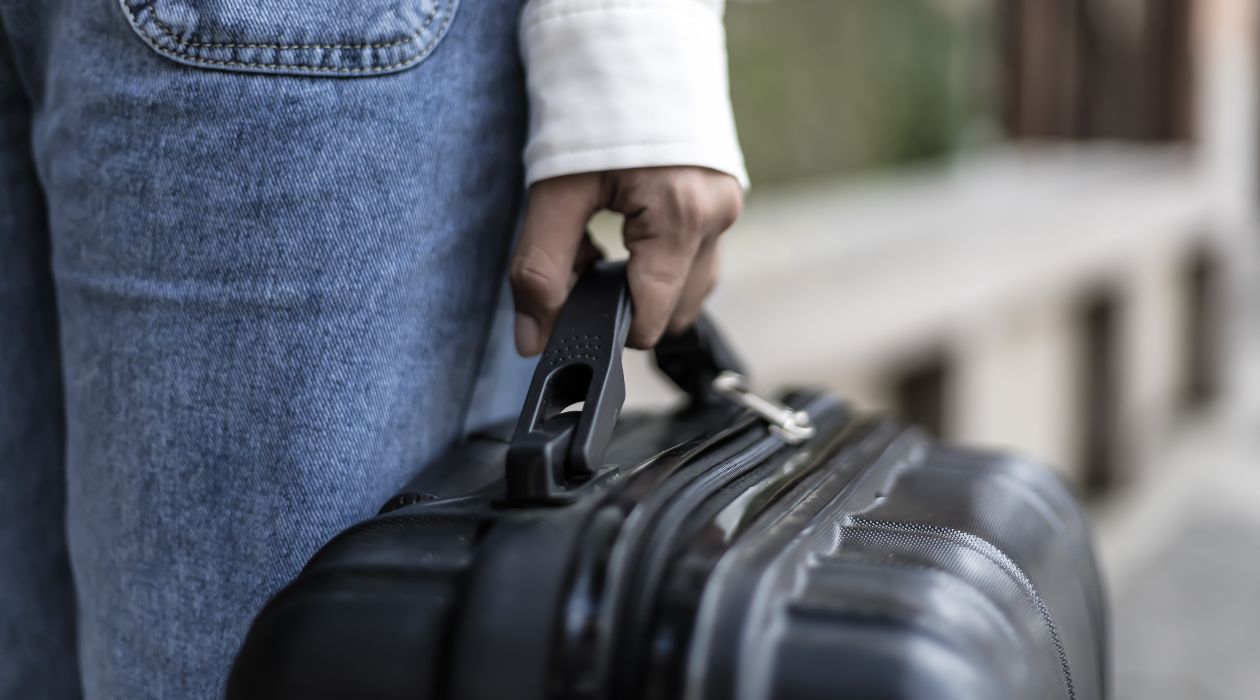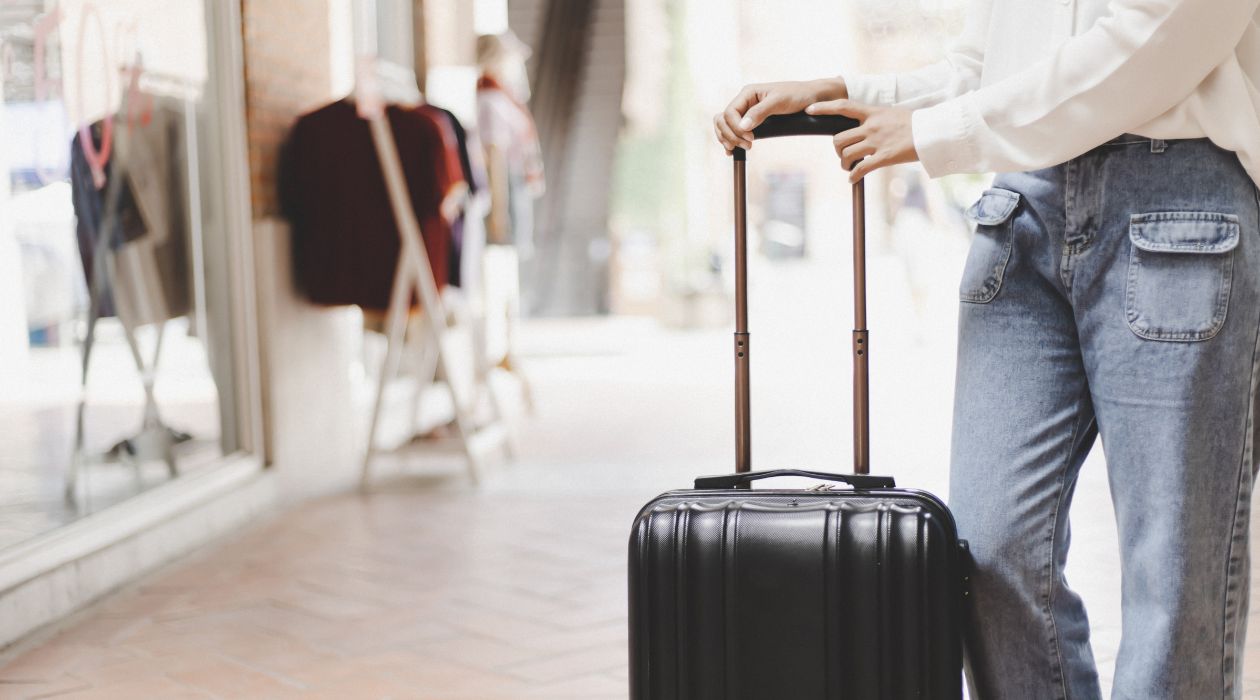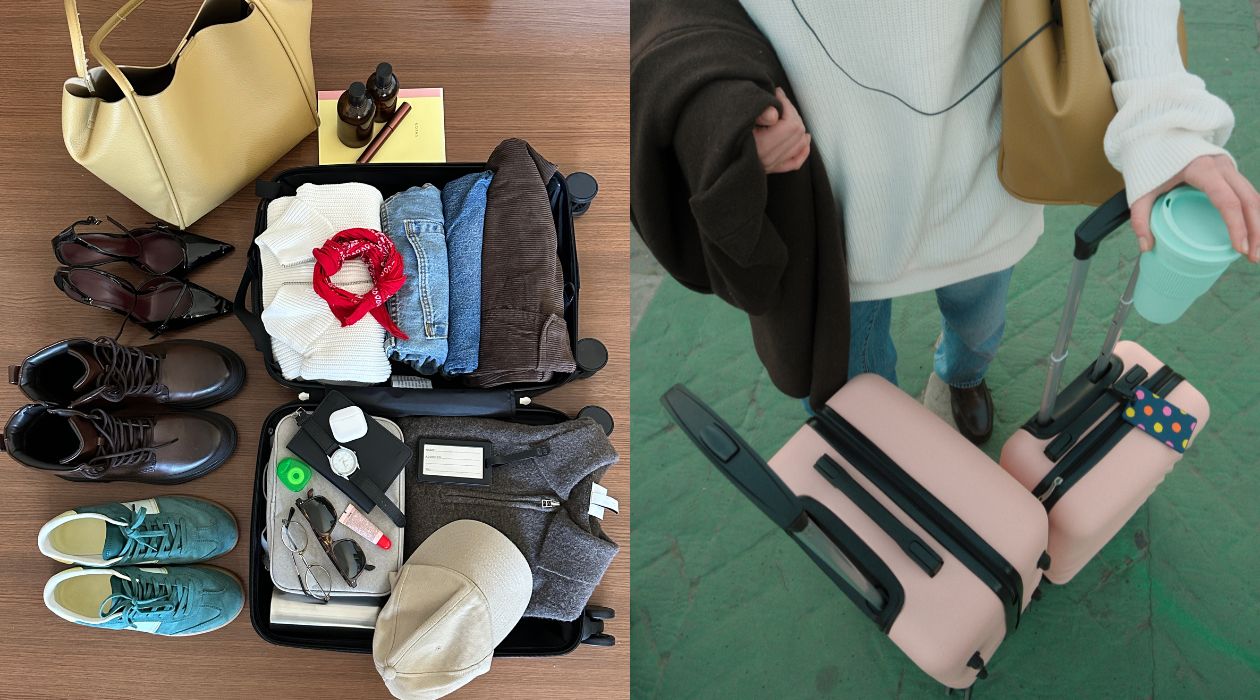
The Science Behind Smart Luggage: Are GPS-Enabled Carry-Ons Worth It?
It is no longer surprising how luggage has entered the smart technology revolution in an era where our watches are counting our steps and our refrigerators are reminding us that we have no milk.

Meet GPS-equipped carry-ons, stylish new travel aids perfecting the sense of security due to the real-time monitoring, smart locks, mobile app connectivity, and additional exciting features, such as in-built chargers.
However, due to increased prices and safety issues concerning the battery, passengers are starting to question:
Are smart carry-on luggage with GPS worth it?
So, what is the science behind it, what are the features, and is this travel technology upgrade worth it to the modern explorer?
What Is Smart Luggage?
Smart luggage refers to any suitcase or carry-on that incorporates technology to enhance functionality. This can include:
-
GPS or Bluetooth tracking
-
USB charging ports
-
Digital locking systems
-
Proximity alerts
-
App-controlled settings
-
Built-in weight sensors
Although features depend on the brand and model, the basic concept is simple: to help make travel safer, easier, and more connected.
GPS tracking is at the core of this trend as it allows travelers to track their suitcase in real time- a significant development in a world where over 25 million pieces of luggage get handled improperly annually by the airlines.
How Does GPS-Enabled Luggage Work?
GPS luggage uses a Global Positioning System chip, similar to those found in smartphones or cars. When turned on, it triangulates signals from satellites to determine its location anywhere on Earth. This data is then transmitted to the traveller’s smartphone via a companion app.
There are two types of tracking used:
-
GPS (Global) – Works anywhere with satellite coverage. Ideal for international travel.
-
Bluetooth (Local) – Short-range tracking, useful in airports or hotels.
Some smart luggage models combine both technologies, offering layered security, so even if your bag is out of sight, it's never truly lost.
The Key Benefits of GPS-Enabled Carry-Ons
1. Real-Time Location Tracking
This is the top reason travelers choose smart luggage. With GPS functionality, you can:
-
Track your bag during layovers
-
Confirm it’s on the plane with you
-
Retrieve it quickly from the baggage carousel
-
Get alerts if it’s accidentally taken by someone else
For frequent flyers and digital nomads, this feature alone can reduce anxiety and travel delays.
2. Digital Security and Locking Systems
Many GPS-enabled bags offer remote locking. If your bag is moved or opened unexpectedly, you'll get an alert. You can also:
-
Lock/unlock your bag via the app
-
Set geo-fencing to trigger alarms if the bag is moved outside a safe zone
-
Use biometric or code-based access
These security layers are a game-changer for travelers carrying tech, passports, or valuables.
3. Power On-The-Go
Some of these smart bags also have power banks built into them so you can charge your phone, tablet or laptop. In long queues or when busy in transport, this is helpful to the remote worker or content maker.
It is always a good idea to have a look to see whether the battery can be removed or not, since most of the airlines do not allow checking of bags with non-removable batteries.
4. Weight Sensors and Packing Assistance
There are even well-developed carry-on bags with electronic scales inside, which warn you that you have crossed the limits of weight allowed by the airline even before you are out of the door.
There are ones that connect with various apps to assist you in optimising your packing by recommending a layout depending on how long your trip is and the gear you are bringing.
The Limitations (And Real Concerns)
As exciting as smart luggage sounds, there are some important caveats to consider.
1. Battery Regulations
Due to fire risks, many airlines now ban non-removable lithium batteries in check-in luggage. Travelers must:
-
Remove batteries before check-in
-
Use only airline-approved battery sizes
-
Carry smart bags as cabin baggage whenever possible
If your carry-on doesn’t comply, it may be flagged or denied at check-in, causing delays or repacking hassles.
2. Cost vs. Value
Smart carry-ons are often 30–60% more expensive than traditional luggage. While some high-end models exceed ($400–$600), they don’t always guarantee better durability or storage.
Before purchasing, consider:
-
-
How often do you travel
-
Your budget for luggage
-
Whether tracking and charging outweigh the extra cost
-
For occasional travelers, a traditional high-quality bag might offer better long-term value.
3. Tech Reliability and Connectivity
GPS tracking relies on consistent signal access, which may not be reliable:
-
In basements or storage compartments
-
During international flights without satellite sync
-
In certain remote regions
Additionally, battery life can be a limiting factor. Some GPS units require recharging after 8–12 hours, and app syncing can be buggy depending on the device.
Who Should Invest in GPS-Enabled Carry-Ons?
Smart luggage is especially beneficial for:
-
Frequent flyers who face regular layovers and multiple legs
-
Digital nomads or remote professionals who carry work gear
-
Photographers/creators who carry valuable equipment
-
Business travelers with tight schedules and no margin for lost bags
For these users, the ability to track and secure luggage can save time, stress, and replacement costs.
On the other hand, occasional vacationers or budget-conscious travelers may prefer to invest in a rugged, sustainable carry-on like those offered by Koora, designed to last for years without relying on electronics.
The Koora Take: Function Over Gimmicks
At Koora, we believe technology should enhance, not complicate. While GPS-enabled carry-ons are an exciting innovation, we prioritise:
-
Durable, sustainable design
-
Lightweight materials
-
Repairable, modular components
-
Eco-conscious materials with lifetime support
Our upcoming smart luggage features are being designed responsibly, with removable power systems and minimal tech waste, so you get the best of innovation without compromising on environmental impact or airline compliance.
Final Verdict: Are GPS Carry-Ons Worth It?
Yes, but only in case they suit your travel lifestyle.
GPS tracking can provide actual peace of mind when you are continuously on the road, carrying pricey equipment, and worried about your luggage getting stolen. The technology is impressive, the tracking precise, and the extra features (the power banks and locks) are useful indeed.
But, when you want to travel lightly, with no fuss and stay sustainable, a high-quality classic carry-on, e.g., Koora carry-on eco line, is probably the cleverer decision to make, with no charging cables and airline rules.
Travel Smarter, Not Heavier
A smarter-than-sophisticated luggage is not always the smartest one. The smartest one is the one that suits your needs, principles, and travelling speed. You can be fully equipped with GPS-enabled features or minimalist, environment-friendly equipment, and the point is to achieve the same goal:
To be able to travel self-assured, purposefully and a little bit more peacefully.



Leave a comment
This site is protected by hCaptcha and the hCaptcha Privacy Policy and Terms of Service apply.